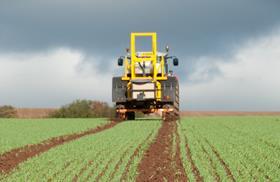
Ignore the implications for agriculture in the UK in the medium- to long-term from climate change at your peril.
That's the message from the James Hutton Institute, which notes that the issue is not just the rising average temperatures, but the type of weather, which trends suggest are becoming more prone to extremes.
In particular, rainfall patterns are predicted to change with drier conditions in the southern UK causing issues with water supply for crop growth whilst in Scotland rainfall is expected to become concentrated into short bursts of heavy rainfall.
Tim Daniell, theme leader for sustainable production systems at the James Hutton Institute, an agricultural research body, said: “UK agriculture is currently some of the most productive in the world for key crops such as cereals and potatoes, and traditionally, our warm, mild, wet climate has been well suited to world-beating yields per hectare and our lead in agricultural research has cemented these advantages.
'As the climate changes, the sector - and the research and development capability that supports it - can use its strong position to anticipate new circumstances and adapt resources and practices accordingly.”
Ken Loades, a soil physicist at the James Hutton Institute, points out that this increased rainfall intensity will lead to greater levels of soil erosion especially on sloping ground. He said: “These effects may be minimised by altering land management to increase infiltration and reduce run off. This would have the additional advantages of maintaining groundwater levels, providing irrigation water during dry periods, and reducing flood risk.'
Meanwhile, speaking at the Oxford Farming Conference this week, environment minister Liz Truss was asked for her views on climate change. 'It's clear that man-made climate change is happening,' she said. 'I support the views of the IPCC (Intergovernmental Panel on Climate Change). My role is to make sure we are adapting, and that's why we are investing new money in flood defences.'



